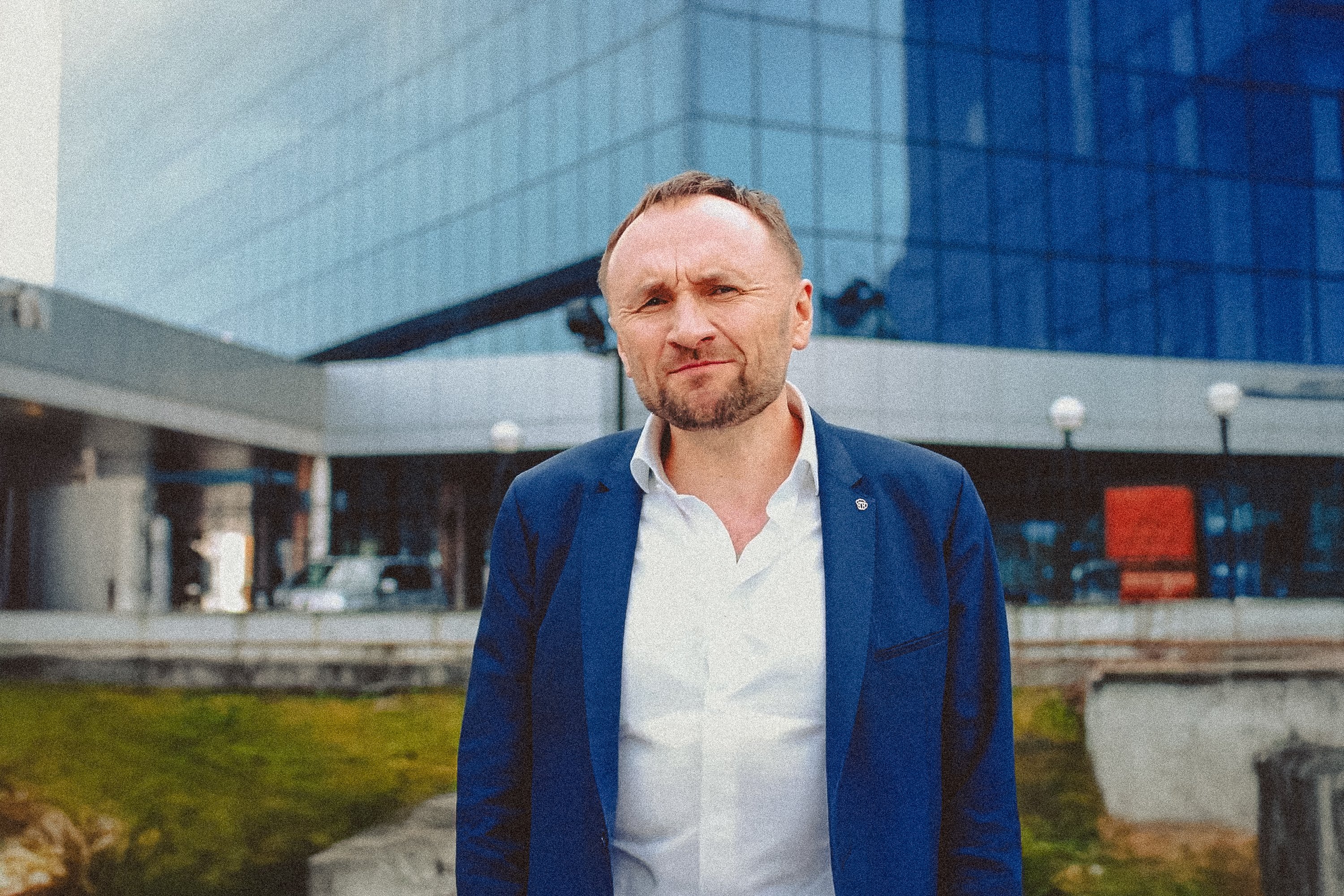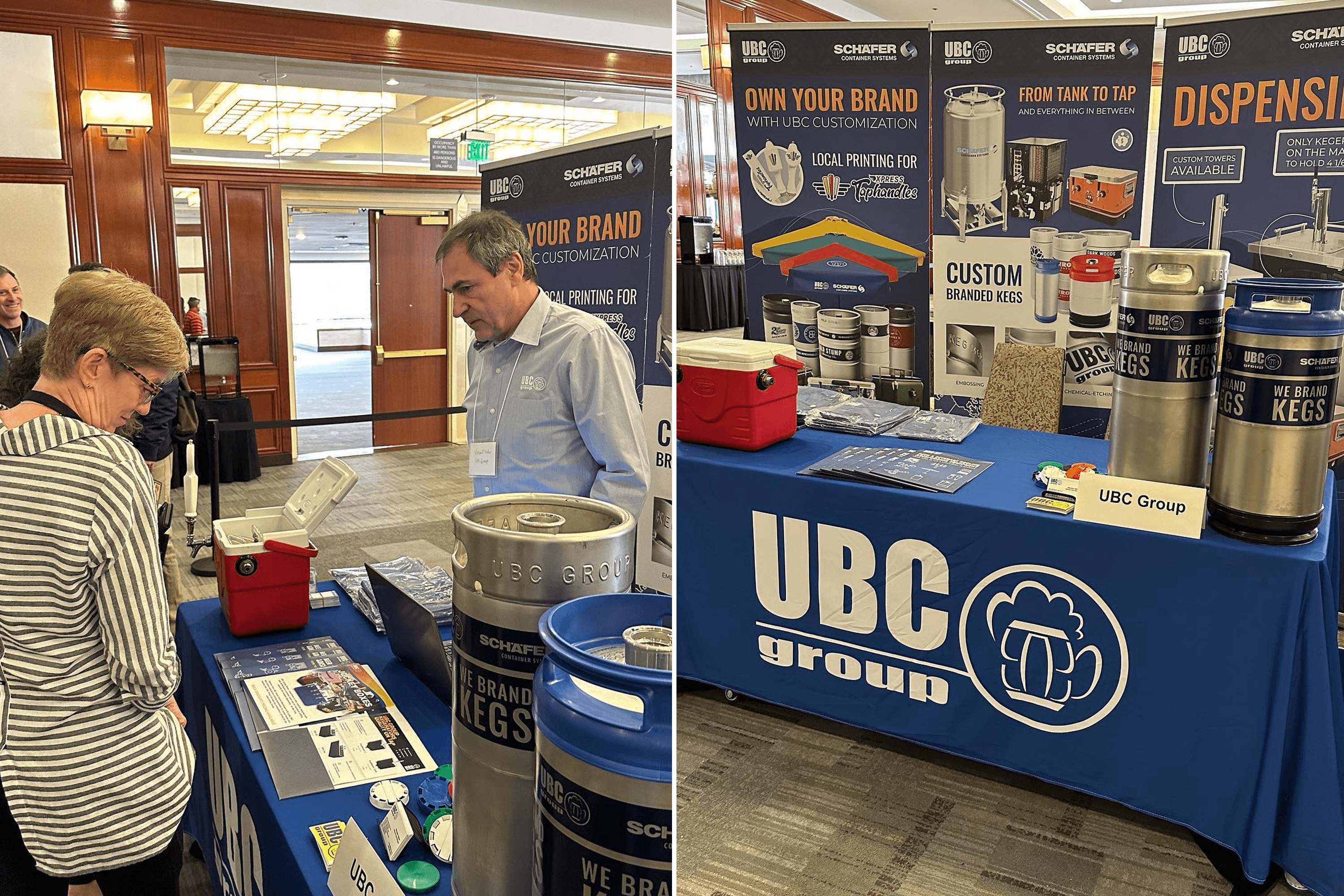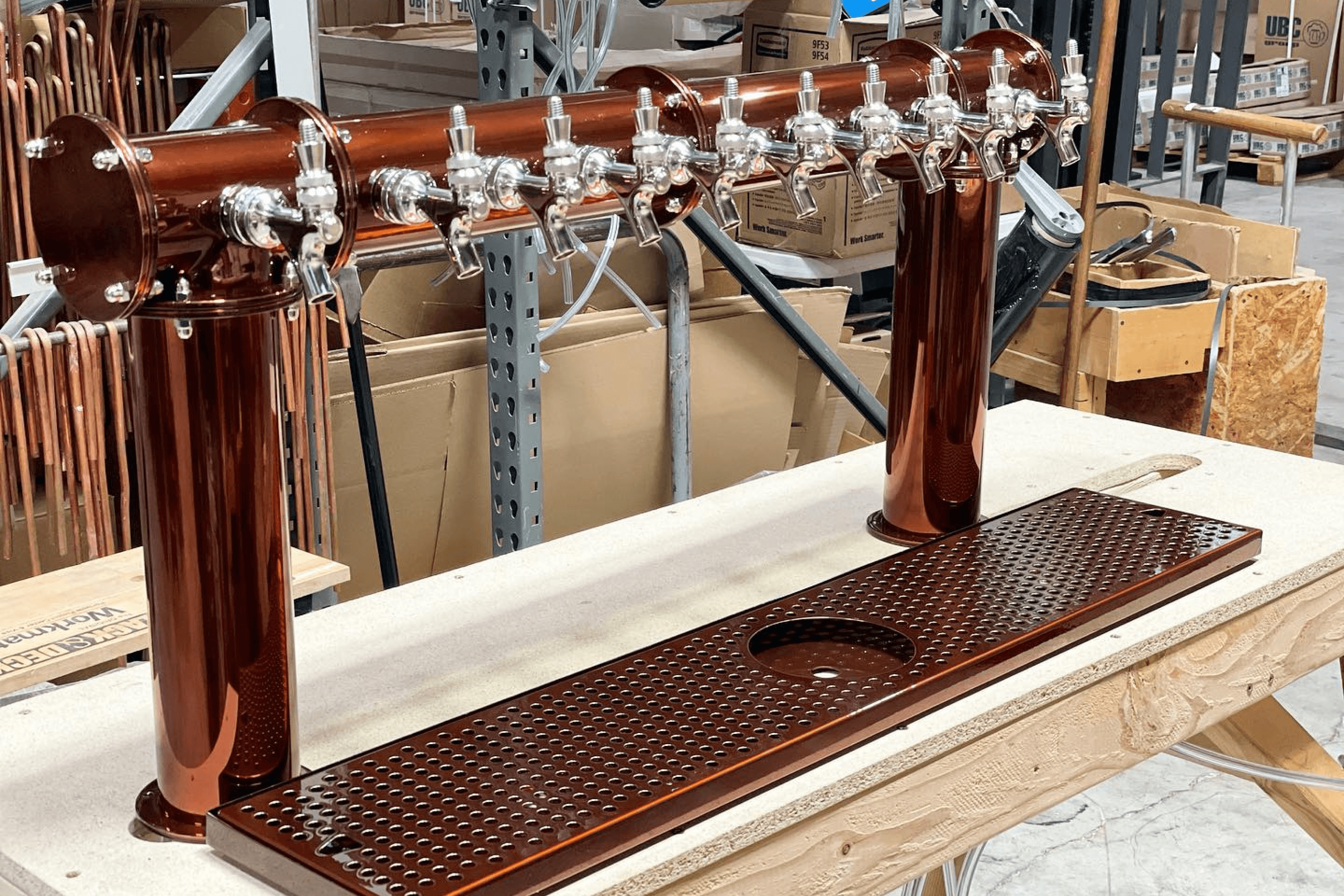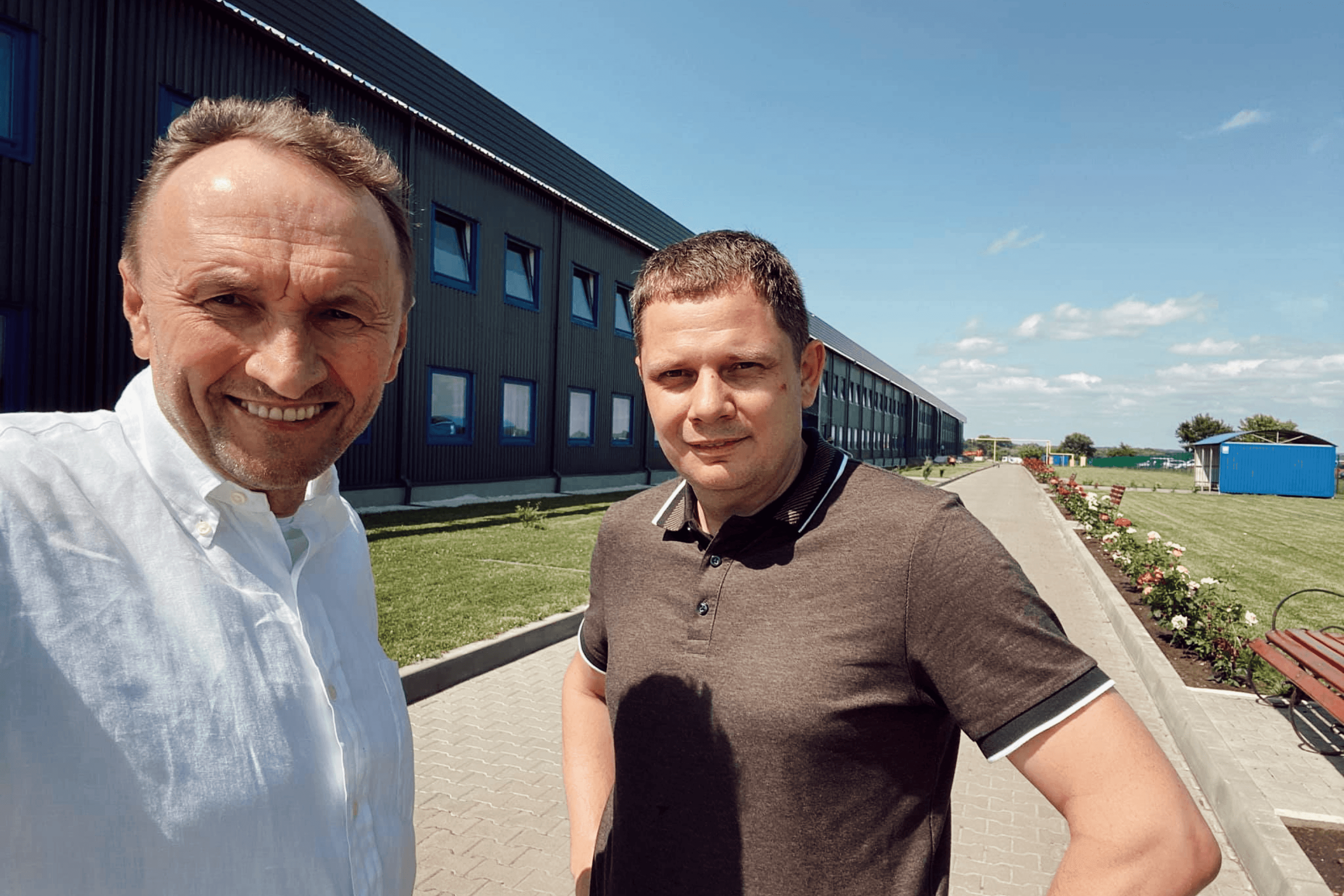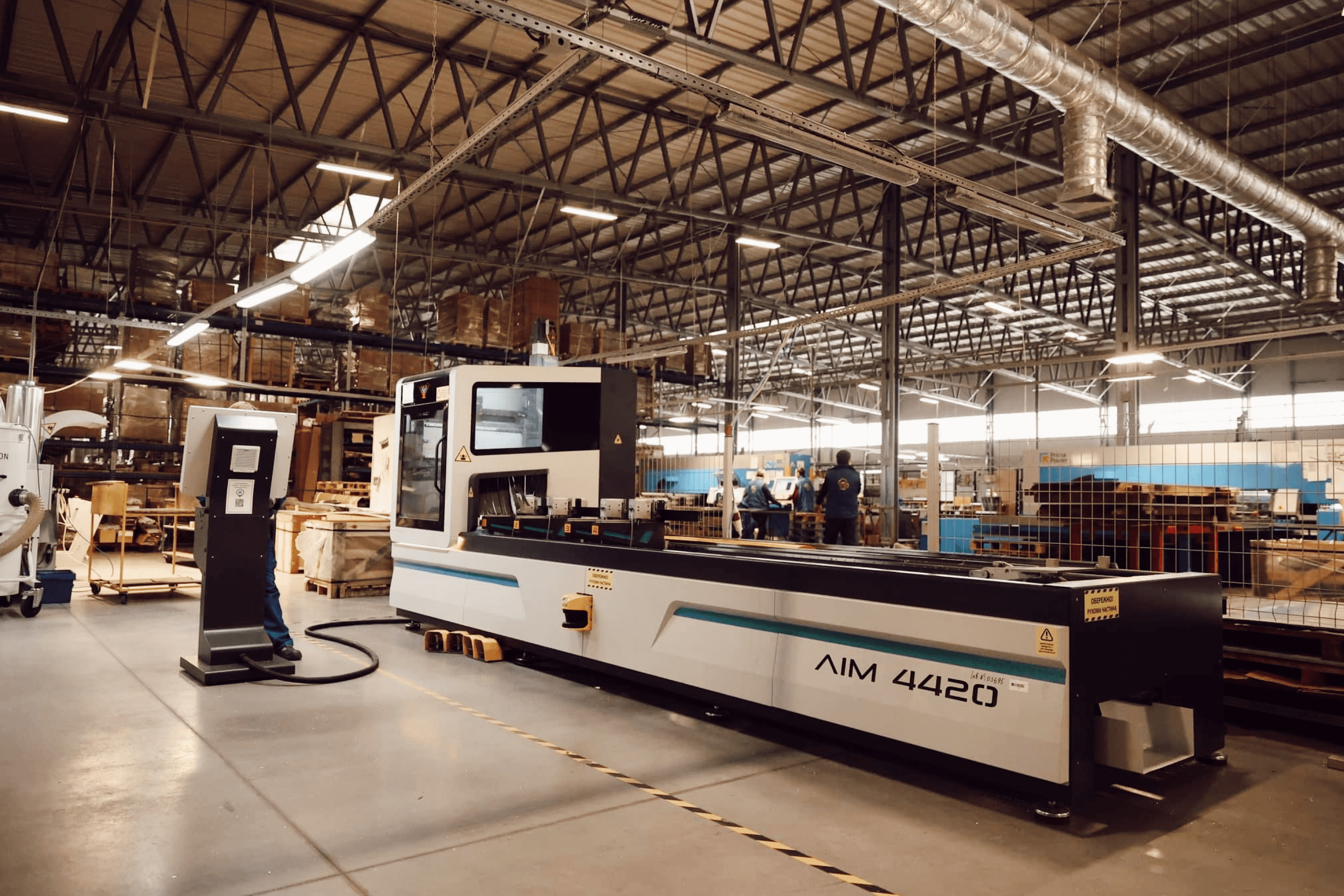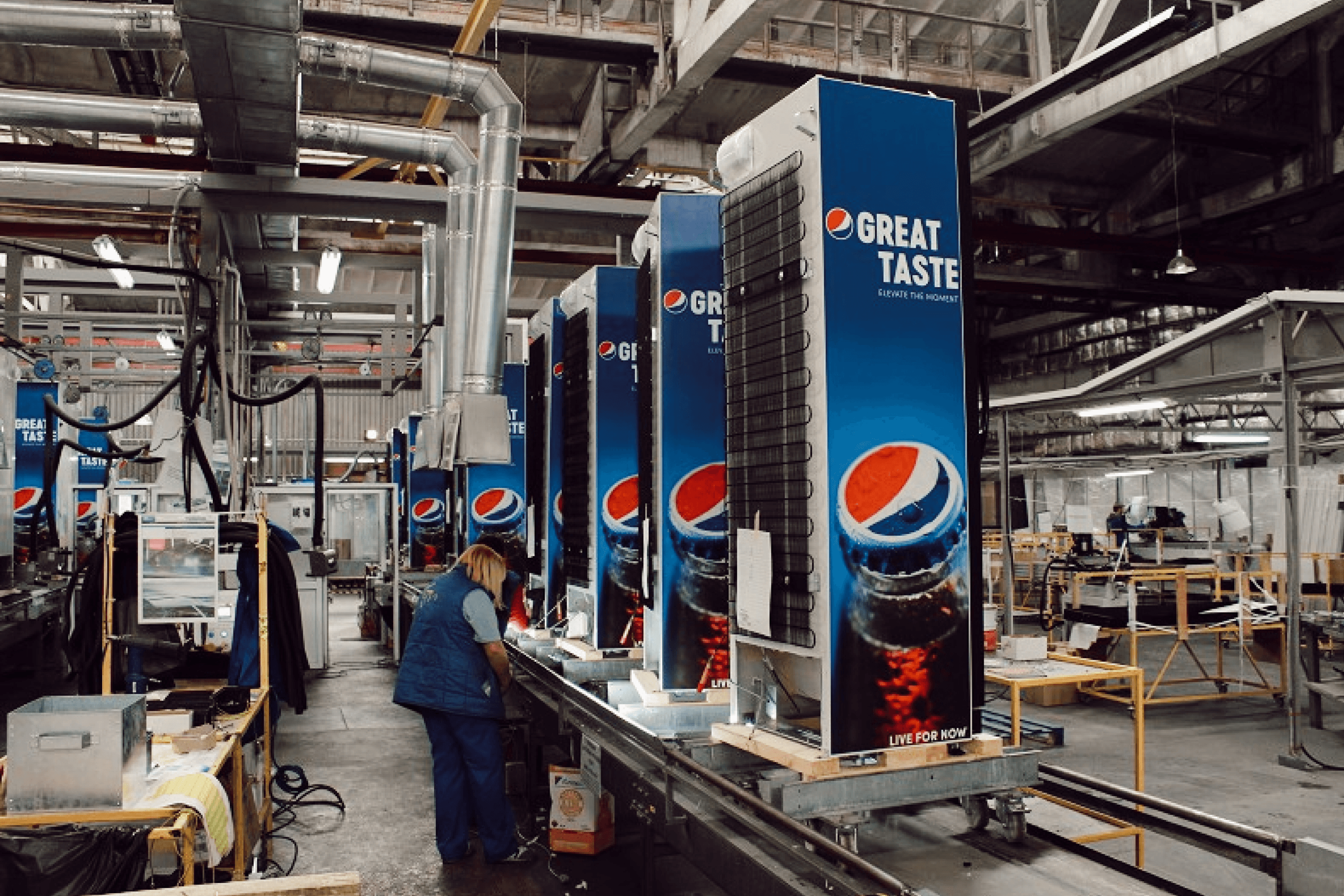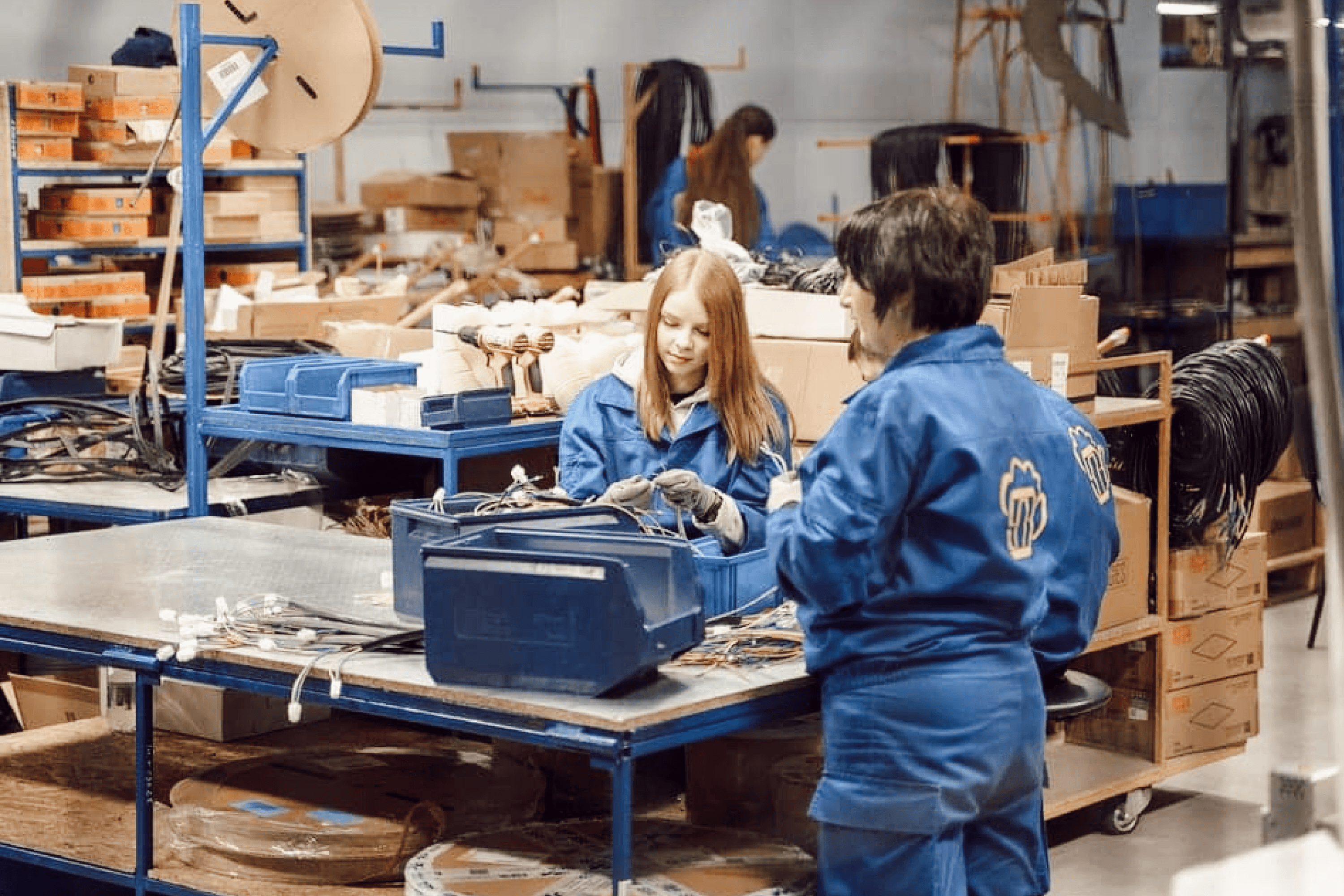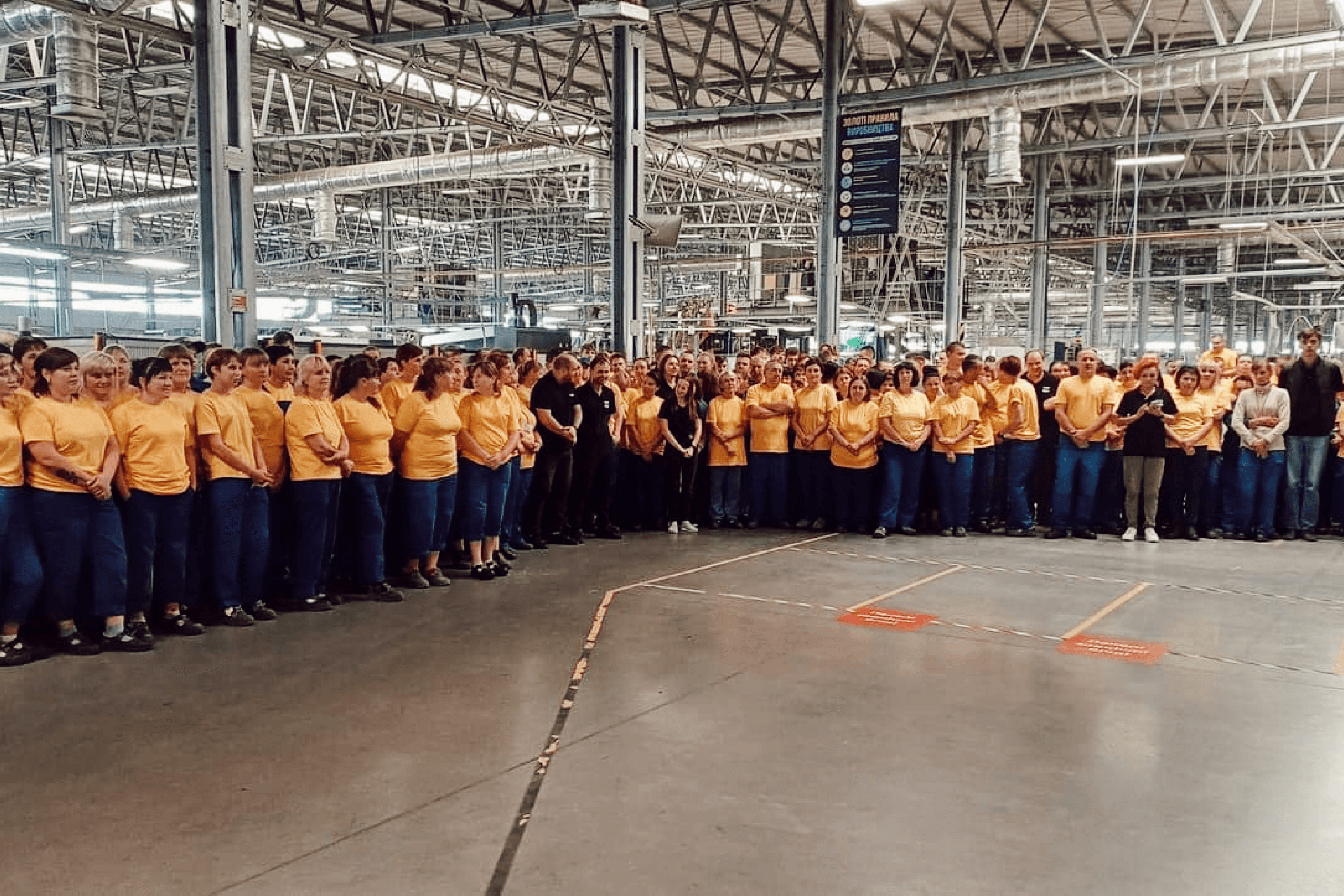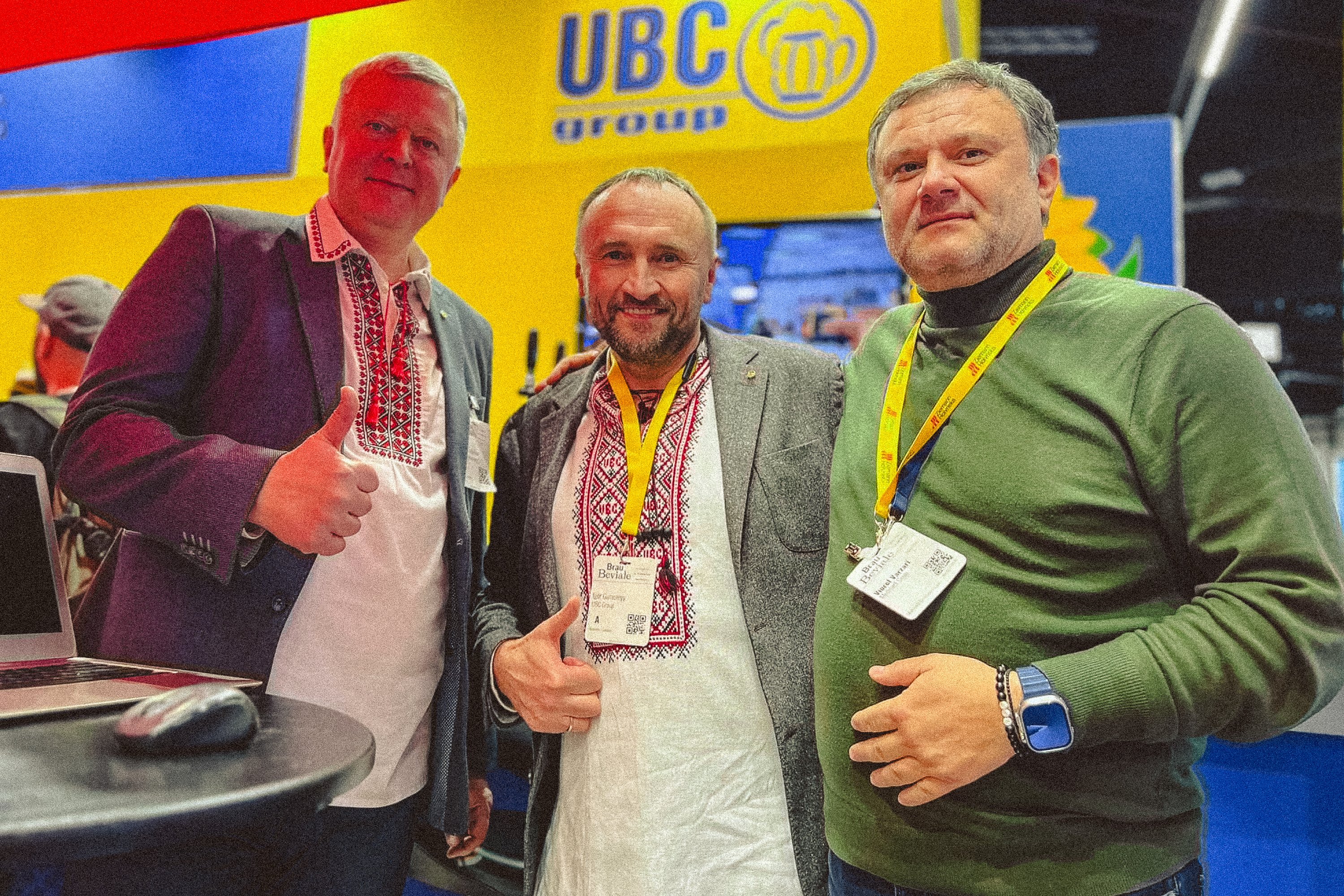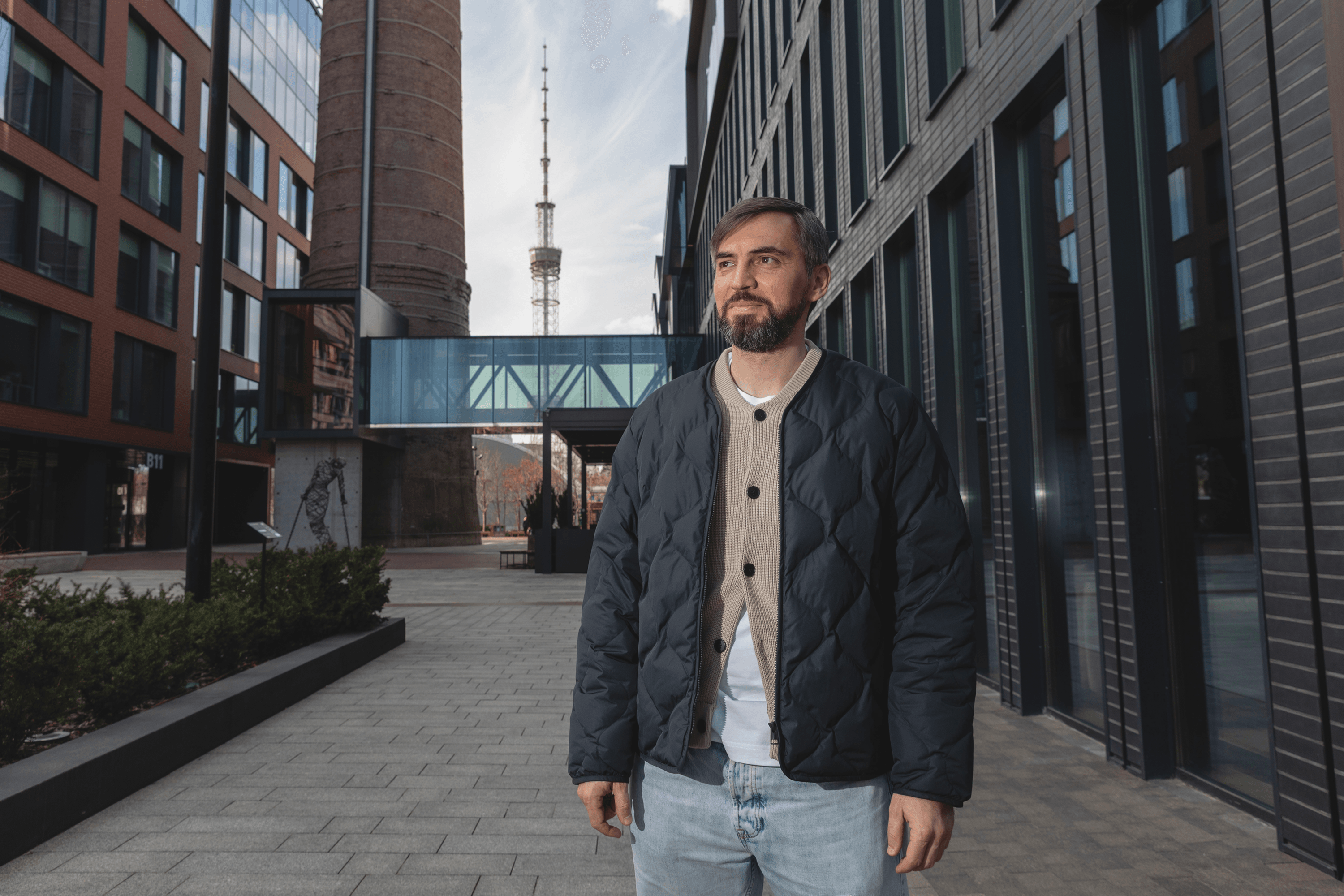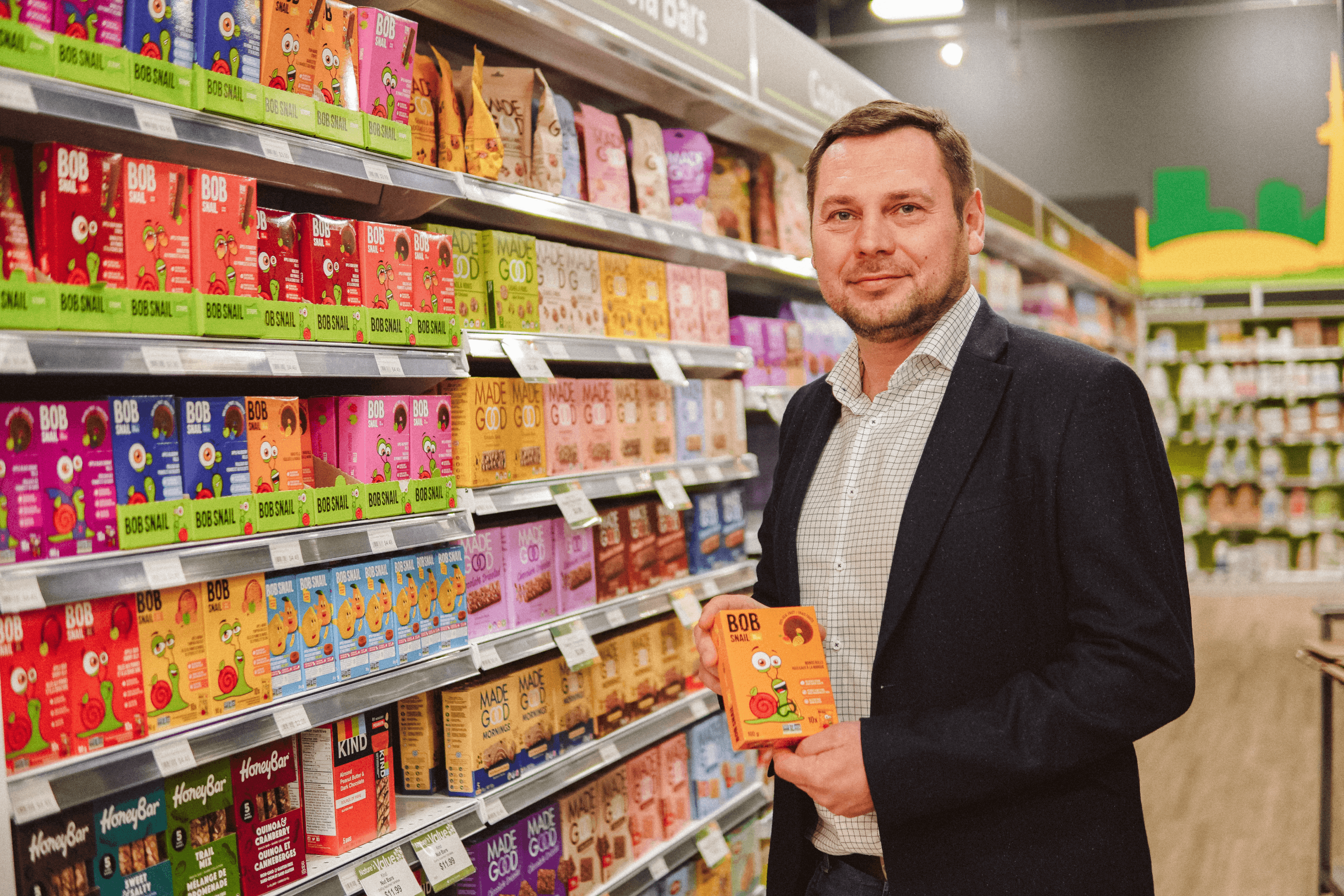Igor Gumennyy is a Ukrainian entrepreneur and founder of Kharkiv-based UBC Group. For 30 years, he has been creating and developing one of the largest businesses in the market of cooling systems and industrial equipment. His company works with global brands like Coca-Cola and Heineken and operates plants that manufacture high-quality equipment for international corporations. Gumennyy also owns the “Stargorod” pub chain, with locations both in Ukraine and abroad. He has created a corporate culture where creative initiatives such as masquerades, beauty contests and extreme tours, help motivate employees and nurture a creative approach to work.
With the start of the Russian invasion in 2022, two UBC Group facilities in Kharkiv were forced to halt operations due to heavy shelling. Refusing to give up, Igor Gumennyy swiftly decided to relocate production to Vinnytsia—a city he was already familiar with, having started building a new refrigeration equipment plant there in 2016. By August 2022, the first products were rolling off the production line, and by 2023, the company was exporting its equipment to Europe, North and South America, and the Baltic countries.
UBC Group is pushing forward and expanding into new markets despite challenging conditions. For Gumennyy, the war became not only a crisis but also a lesson. He admits that, despite the economic and personal hardships he had faced, the war has brought challenges on an entirely different scale.
In an interview with YBBP journalist Masha Zhartovska, Igor Gumennyy shared his insights on UBC Group’s growth in new markets, the realities of doing business during wartime, and the contrasts between the mindset of Ukrainian entrepreneurs and their international peers.
As the owner of UBC Group, a company with multimillion-dollar revenues, how would you introduce your business in a quick elevator pitch?
UBC Group is a leading manufacturer and distributor of refrigeration equipment and branded promotional products. We’re proud to employ around 3,500 people, with our workforce expanding to nearly 4,000 during peak seasons to meet increased demand.
Our production is manufactured at multiple plants, and operations may scale efficiently according to the season.
Who are your primary clients today?
Our main customers are beverage producers, especially breweries. It’s a highly seasonal industry, and our products play a key role in helping them prepare for peak demand. Take beer producers, for instance: in August, their production volumes can be six to eight times higher than in February. To prepare for this surge in the high season, they stock up on our products — everything from branded umbrellas and patio furniture to banners and bar accessories like beer tap handles. In 2024 alone, we sold over 5,000 Ukrainian-made branded umbrellas in Canada.
Not long ago, I spotted beer towers dispensing eight beer varieties in a Toronto bar. It struck me because we haven’t manufactured that particular model in over ten years. But beer towers are more than just functional — they’re a style statement. When brands like Molson or Labatt launch a new beer, they often commission fresh tap handles or towers to make their product stand out. It’s all about catching the customer’s eye, so innovation in design and form is a constant need.
While Steam Whistle Brewing isn’t one of our global clients, its products have always stood out. They are growing even more popular now, but before COVID-19, their lineup was notably simpler — they brewed just one beer, staying loyal to classic European traditions. Traditional breweries often follow this model because brewing multiple styles, such as an IPA and a pilsner, simultaneously can compromise quality. However, consumer tastes are shifting, especially in the U.S., where craft beer has seen a surge in popularity, leading to the rise of new varieties.
In a recent Facebook post, you mentioned that Steam Whistle Brewing, one of Canada’s most iconic breweries, is your client and has renewed its contract for 2025. How has the war in Ukraine impacted your contracts?
For companies like Steam Whistle Brewing or Starbucks, the war in Ukraine represents a moral dilemma. They care deeply about what’s happening but at the end of the day, business needs to run. When they place an order, their top priority is knowing the goods will arrive on time. Working with a country at war naturally comes with risks, which can make collaboration more complicated.
How would you describe your share of the market in Canada and the U.S.?
In Canada, we’ve been working with over 500 small craft breweries for the past 15 years. Our market share for beer coolers here is approximately 30-40%. In the U.S., our share is smaller, around 5%, but we’re making significant efforts to expand.
Our Canadian operations are based just outside Toronto, with a team of 16 people. We also have an office and warehouse in Vancouver. In the U.S., our main office is in St. Louis, with additional branches in Kansas, California, Philadelphia, and Boston. Across Latin America, we’re headquartered in Mexico City, with operations spanning from Mexico to Colombia, as well as in Santiago, Chile.
Your company operated in Russia and had a facility in Crimea. What happened to that business after the annexation and the start of the war in 2014?
That same year, we shut down our operations at the Krasnoperekopsk plant. At that time, we had two factories in Russia: one in Belgorod and another in Nizhnekamsk, near Kazan. The Russian authorities wasted no time. Immediately after the war began in 2014, they launched a criminal case against us, froze our accounts, and sent officials with documents appointing temporary managers to take control of our assets. It became clear that this was part of a coordinated and efficient corporate raid.
Tell us about relocating your business from Kharkiv to Vinnytsia.
One of our Kharkiv plants was heavily shelled at the beginning of the war. It was a large facility employing around 3,000 people, but a 500-kilogram bomb dropped by Russian forces destroyed it entirely.
We relocated our refrigerator manufacturing to Vinnytsia, where it is now operating successfully. At the same time, we moved our industrial product manufacturing to Sofia, Bulgaria, by acquiring a 90% stake in a local company already operating in a similar industry.
We also relocated part of our staff to Bulgaria, focusing on those with the greatest need, about 70 employees moved. Our Bulgarian operations now focus on producing promotional items like tents and pavilion structures for Southern Europe and the Balkans. The plant in Bulgaria is located near two ports, significantly improving logistics.
In Vinnytsia, operations are running smoothly, and logistics have stabilized. For instance, whereas shipments from Ukraine to Canada used to take up to three months, they are now reduced to a month and a half, depending on the destination.
In addition to Bulgaria and Vinnytsia, we’ve managed to retain parts of our Kharkiv facilities, although their production capacity has diminished considerably due to the war. Kharkiv was a major industrial and manufacturing hub with a large student population and skilled workforce, enabling rapid production scaling. In Vinnytsia, scaling is more challenging due to limited access to trained engineers and technical staff.
Where else do you have factories?
We are building a new factory on the border of Kazakhstan and Uzbekistan to maintain our presence in Central Asia. We rely on trade routes that bypass Russia, passing through Turkey and the Caspian Sea. There is a lack of local graduates in Kazakhstan, which means we often need to bring in skilled workers, including from Ukraine.
Ukraine, as part of the post-Soviet space, has its unique characteristics. After the Soviet Union collapsed, Ukraine retained strong traditions in machine building and high technology, although these are less advanced now compared to the West. Kazakhstan, in turn, specialized in grain and metal, but after the collapse of the Soviet Union, many of these industries also lost their significance, making the situation there even more complex.
One of the key strengths of Ukrainians is their adaptability and eagerness to learn, which truly sets us apart. For example, in Brazil, Mexico, and South Africa, where we also operate, literacy rates are a significant challenge. In Ukraine, even people from the most rural areas would have access to education and can achieve remarkable progress within just one generation. This adaptability and focus on education give Ukrainians a competitive advantage compared to Latin America or Africa.
I’ve heard people say that North American markets can be conservative and that some of their approaches feel somehow outdated. Do you share this view? Are there any other peculiarities about working in the Canadian and U.S. markets?
The Canadian and U.S. markets are significantly different from the Ukraine’s. We need to adapt our products to suit them. For instance, we design custom solar systems that align with local energy efficiency standards.
Strong communication is equally crucial, particularly in e-commerce, where language proficiency plays a key role. Miscommunication can easily drive customers away. Our managers who relocated from Russia mention that, while the relocation process was smooth, adapting to life in a new country always comes with its challenges. That said, younger generations tend to adapt more naturally in Canada, where integration feels more organic.
What challenges do Ukrainian businesses face in foreign markets, and what strengths set them apart?
One of our greatest strengths is our determination to succeed, even in difficult circumstances. Ukrainians have a strong desire to achieve results, making them quick to establish themselves as reliable and hardworking employees. Another key advantage is that Ukrainians are not associated with organized crime abroad, reflecting their ability to integrate and work within legal frameworks.
On the other hand, our cultural weakness is paternalism. We tend to rely on others to take action on our behalf, which can slow down progress. We are also a few decades behind Europeans and Americans in terms of modernization, partly because in Ukraine it began much later. This delay causes some outdated approaches including nepotism which still exists in Ukraine.
In Europe, Ukrainians adapt rapidly, often blending seamlessly into local communities within a few years. However, Ukrainians show weaknesses in entrepreneurship. Between 8 and 12 million Ukrainians have emigrated, and while many have achieved success abroad, systemic businesses originating from Ukraine in Western Europe remain limited. For instance, my cousin, who moved to Portugal in the late 1990s, started working in a restaurant and now owns a beauty salon. This is an example of private business but not systemic business. Compared to other nationalities like Armenians or Jews, Ukrainians hold higher average positions, but there are far fewer millionaires or billionaires among them.
In 2023, you announced plans to expand your global presence by 30%, focusing on Western Europe and North Africa, and to open an office in Dubai. How has this progressed?
Yes, we’ve made some significant progress. In Western Europe, for instance, we achieved about 50% of our target, particularly strengthening our presence in the UK. We also successfully opened our Dubai office, which is now operational, serving as a hub for North Africa and India. For us, Dubai plays a critical role, much like London or Los Angeles, due to its strategic location and the presence of major international companies like Coca-Cola, PepsiCo, Nestlé, and Unilever, serving markets in Saudi Arabia, Amman, Bhutan, and beyond.
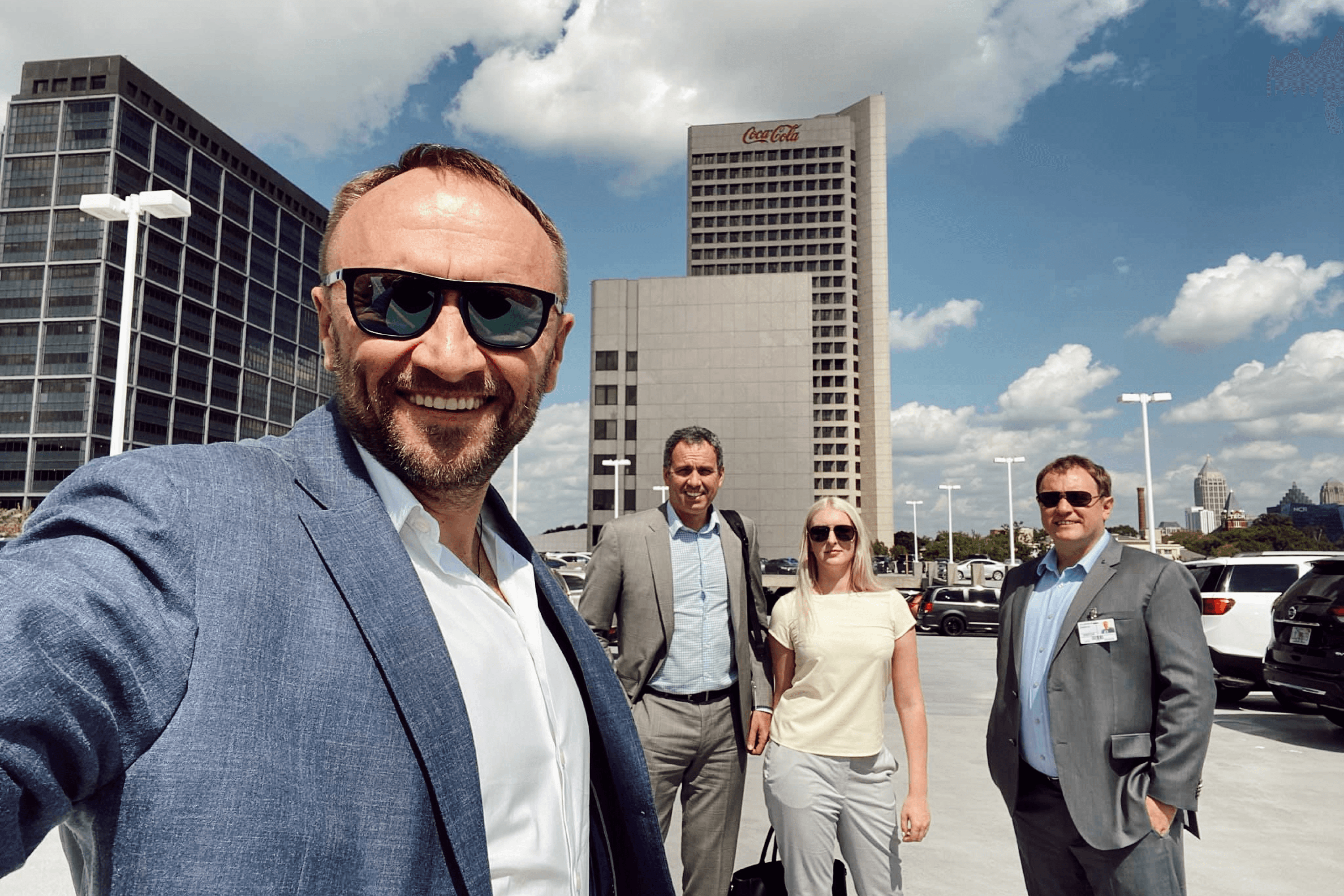
Why hasn’t the expansion been faster? Is it due to market resistance?
These are highly competitive markets. They’re mature and no longer experiencing the rapid growth they once did. It was much easier to do business in Ukraine and the post-Soviet space in the 1990s, with markets growing by 10% annually. Now, these markets are stable, with growth rates of just 1%. Breaking into such markets requires taking market share from established players, and that’s the biggest challenge.
So, no one is willing to give up their market share?
Exactly — it’s almost like a war. Losing market share could mean losing your business and facing bankruptcy. This applies to all companies from Ukraine. Entrepreneurs aiming to enter the American or European markets must understand that they will have to take market share from existing players.
Am I right in understanding that your main competitors are Chinese manufacturers? Do you think China might be losing its dominance as Europe and the U.S. aim to reduce their dependence on Chinese supply chains? Can this open growth opportunities for you?
Multinational companies tend to prioritise cost over the origin of production, they care about the price. For instance, we distribute beer kegs from Schacher, a German company with factories in the Czech Republic and Germany. For instance, we distribute beer kegs from Schacher, a German company with factories in the Czech Republic and Germany. In the U.S., we sell these kegs because metal products are subject to 100% tariffs. However, when comparing the cost of goods from the Czech Republic to those from China, there is a 40% price difference.
Over the last 30 years, China has developed its industrial base to such an extent that manufacturers can source most components for products, such as refrigerators, within a few dozen kilometres of their facility. In Ukraine, we import parts from all over the world, including Turkey and China. China’s industrial clusters, focused on specialised products, give them a significant cost advantage.
Chinese cars are a great example with their automakers challenging Europe’s established automotive industry. While they haven’t yet reached the luxury standards of brands like BMW, they can offer highly competitive mid-range makes. I recently visited Kazakhstan, where Chinese cars dominate the roads. In Europe and America, Chinese manufacturers aren’t yet competing in the premium segment, but they are making steady progress in standard market segments.
When it comes to equipment, we currently use German and Italian metalworking machines. However, Chinese suppliers are pushing hard to sell us their equipment. We avoided their products for a while until we realised that some Finnish suppliers actually outsource their manufacturing to China. When comparing prices, Chinese machines are four times cheaper than German ones, with only a slight dip in quality, around 3-5%. We’re considering a pilot project to test some Chinese equipment’s performance over a year. If it proves unreliable and breaks down often, it won’t be suitable for high-demand, continuous production, but it could work well for smaller-scale operations that don’t run around the clock.
You’ve planned to enter the Indian market. What products are you thinking of offering, and what are your expectations for this market?
India, now the world’s largest country, is already a market for our classic product lines. However, this market comes with a significant challenge: each Indian state functions almost like an independent country, with its own tax and regulatory requirements. For example, one state may have one VAT rate, while another has a different one. This leads to a certain level of market fragmentation. To succeed in India, you need to have a detailed understanding of each state. It’s not as straightforward as in Europe, with its single market. Beer manufacturers, for instance, might build a factory in one state, sell their products in another, and face entirely different tax structures. While in the third state, beer might even be banned entirely. Therefore, this market requires a localised approach.
Let’s shift to a more personal topic. You’ve previously mentioned that you personally set the direction for the business and established its trajectory. You also implemented a system of penalties and incentives for employees and top executives. How have you adapted the business to the realities of war?
We didn’t adjust anything, everything continues to function. However, we can no longer gather together as a team, which used to be an important part of our operations. At least three times a year, we would bring the team together in different locations to strengthen bonds among our globally distributed team. That face-to-face interaction is vital, but the war and travel restrictions have made it impossible. Regarding manager motivation, I haven’t noticed any decline. At our company, those whose motivation drops need to look for a place where they feel more comfortable.
You used to speak with great passion about your chain of beer restaurants, “Stargorod”. Now, you seem to mention it less frequently. How is your restaurant business under UBC Group doing today?
We still have restaurants. Before the war, they were located in Donetsk, Mariupol, Dnipro, Lviv, Kharkiv, Riga, Sochi, and Saint Petersburg. In Russia, we operated through a franchise model, so when the war started, we discontinued franchise fees. Currently, the restaurant in Riga is still open, along with those in Dnipro, Lviv, and Kharkiv in Ukraine. In Ukraine, the restaurant business is self-sustaining, which, under the circumstances, is a good outcome.
Like many business leaders, you often discuss the challenges of running a business in Ukraine and advocate for economic reforms. What, in your opinion, are the three biggest obstacles?
The absence of the rule of law, insufficient investment, and inefficient use of domestic resources. To make Ukraine a desirable place to live, it’s essential to ensure property rights protection and create a welcoming environment for investors willing to bring capital into the country. Investors need confidence in returns on their investments and the ability to compare Ukraine’s investment potential to nations like Poland or the Czech Republic. However, this cannot be achieved without effective judicial reform and fair legislation.
Additionally, Ukraine needs to rethink its approach to social benefits, as it is not yet equipped to provide the high level of social protection seen in more developed countries.
You’ve faced a series of significant personal crises: leukemia, the COVID-19 pandemic, and now the war. You once remarked that while the earlier challenges were tough, the war is on a completely different level. How have you managed to navigate these hardships as a business leader?
Honestly, it has become somewhat easier for me. When COVID shut down businesses and everything was put on hold, it was terrifying. But during the war, when six of my security staff were killed, business challenges feel insignificant in comparison. This is an entirely different scale. The challenges we faced before simply don’t compare to what we are experiencing now.
In the third year of the full-scale war, interest in Ukraine is gradually fading. It’s no longer a priority, even in the media. Have you noticed a decline in interest through the lens of your business activities?
Compared to the early days of the war, we did notice some changes. For example, in Toronto, we used to produce souvenirs — various beer-related accessories with messages supporting Ukraine, like “Russian warship, go f** yourself.” These items were sold at premium prices — ranging from CAD500 to CAD1,000 — with all proceeds immediately directed towards purchasing drones and frontline equipment.
During 2022–2023, in partnership with our craft breweries, we frequently showcased Ukrainian products at various events. People would often donate money on the spot to support the Ukrainian army. One time, an American warehouse owner, a Vietnam War veteran and gun collector, arrived in a massive Hummer filled with ammunition and machine guns from his collection. He told us it was all for the Ukrainian army and we had to navigate the complexities of finding licensed importers for such equipment.
That was back in 2022–2023. Later, when I was in a hospital in Germany, I saw the entire centre of Berlin transform into a sea of yellow and blue, with flags on every museum and government building.
At first, it was incredibly moving, but now people have become accustomed to it. However, I firmly believe we have no right to feel entitled — we should be profoundly grateful for the support we’ve received.
Before the COVID-19 pandemic, you were open to the idea of selling the business. Has your perspective shifted, and is selling still on the table?
Before COVID, we indeed considered selling part of our shares, but the start of the pandemic put those plans on hold. Now, with the war, selling the business is entirely off the table. Privatization during wartime feels out of place, and we are not considering selling the business at the moment. My goal is not to sell the business and retire. For me, business is the ecosystem where I live and work. Right now, our focus is on organic growth and expanding into new markets, particularly in North Africa and the Americas.

